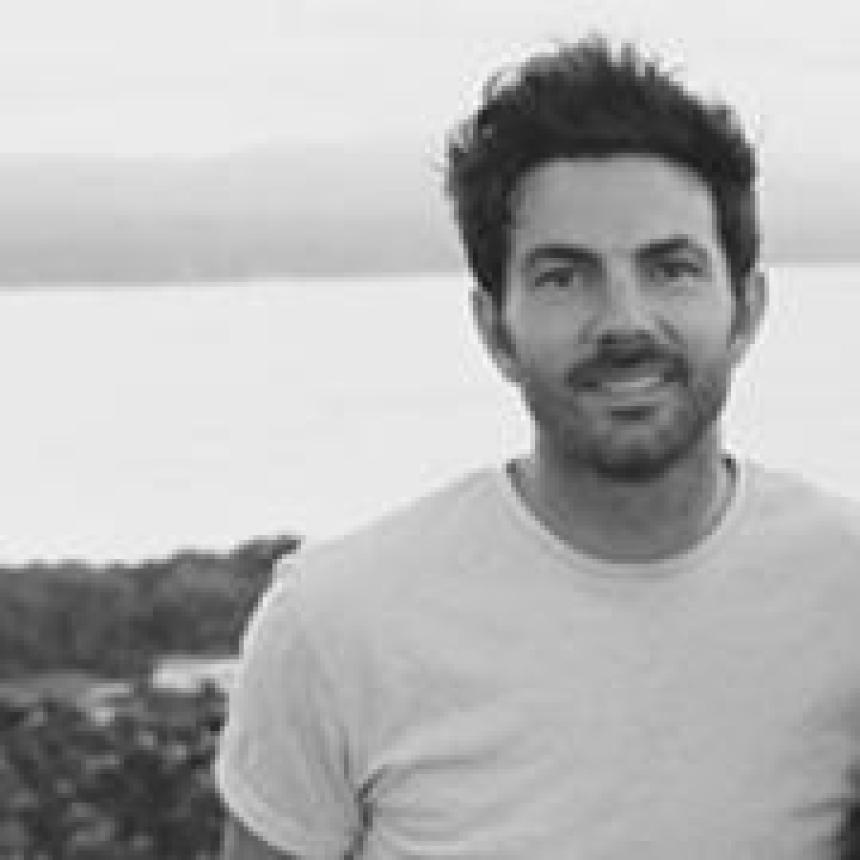
Jacob Mills
School of Biological Sciences
Faculty of Sciences, Engineering and Technology
I distinctly remember saying to a friend during undergrad that there was NO WAY I’d work on microbes or urban ecology – I wanted to be out on the land where I grew up, conserving and restoring the plants and critters from generations of poor land managers in the area. Then I met Martin and Nick. They had a soil microbiome project for me to do in my final year of undergrad, they’d never done it before and either had I. But it hooked me. The tiny-enormous world of microbes is CRAZY. They keep everything alive through symbiotic processes, they manipulate behaviour from increased risk taking to sugar eating (did I just hear Robert Sapolsky say free will doesn’t exist?), and fitting with part of my own ethos – they recycle. Another big part of my ethos is personal, community, and planetary health and the more I read the more I firmly believe that looking after our own, and the environments, microbiome is the only lifestyle choice we need to make for long and healthy lives. This comes down to biodiversity - the great promoter of microbial, dietary, and lifestyle diversity. So here I am, in the midst of a global urban public health crisis strongly linked to poor microbiomes, researching the interactions between microbes, plants, and humans in urban spaces with the aim of restoring health at all levels of the biosphere, through Microbiome Rewilding.
-
Appointments
Date Position Institution name 2018 - ongoing PhD candidate University of Adelaide, Adelaide -
Education
Date Institution name Country Title 2016 - 2017 University of Adelaide, Adelaide Australia Bachelor of Science - Honours 2013 - 2015 The University of Adelaide Adelaide Bachelor of Science - Advanced -
Certifications
Date Title Institution name Country 2009 Certificate III in Electrotechnology - Systems Electrician TAFE SA Australia
-
Journals
-
Conference Papers
Year Citation 2013 Beller, D., Bess, J. D., Lords, D., Boles, J., Clark, K., Domingo, A. S., . . . Hua, F. (2013). The UNLV ATRC criticality benchmark experiment project. In Transactions of the American Nuclear Society Vol. 109 (pp. 838-841). -
Conference Items
Year Citation 2017 Mills, J. G., Weinstein., Gellie., Weyrich., Lowe., & Breed. (2017). Restoration of urban green spaces rewilds the environmental microbiome with associated shifts in the human microbiome.. Poster session presented at the meeting of Society for Ecological Restoration. Foz do Iguacu, Brazil. 2016 Lowe, A. J., Breed, M., Gellie, N., Guerin, G. R., Mills, J., & Christmas, M. (2016). Restoring South Australia's native vegetation. Poster session presented at the meeting of ''Botany 2016 – Past, Present and Future' Symposium. South Australian NRM Science Conference.. The University of Adelaide. 2016 Mills, J., Breed, M. F., Gellie, N., & Lowe, A. (2016). Revegetation rewilds the bacterial microbiome of an old field. Poster session presented at the meeting of Conservation genetics. Hamilton, NZ. -
Report for External Bodies
Year Citation 2021 Dornan, T. N., Mills, J. G., Shiel, R., Keneally, C., Dorji, T., Deane, D., . . . Brookes, J. D. (2021). Monitoring microinvertebrate response to environmental watering events in the SA River Murray in 2020. -
Datasets
Year Citation 2020 Mills, J. G., Bissett, A., Gellie, N., Lowe, A., Selway, C., Thomas, T., . . . Breed, M. (2020). Revegetation of urban green space rewilds soil microbiotas with implications for human health and urban design. 2017 Gellie, N., Mills, J. G., Breed, M. F., & Lowe, A. J. (2017). Revegetation rewilds the soil bacterial microbiome of an old field. Part 2: Soil chemistry.
DOI- Yan, D., Gellie, N., Mills, J., Connell, G., Bissett, A., Lowe, A., & Breed, M. (n.d.). Archaea restoration raw OTU data.
DOI- Liddicoat, C., Weinstein, P., Bissett, A., Gellie, N., Mills, J., Waycott, M., & Breed, M. (n.d.). Data Inputs - Can bacterial indicators of a grassy woodland restoration inform ecosystem assessment and microbiota-mediated human health?.
DOI- Liddicoat, C., Sydnor, H., Cando-Dumancela, C., Dresken, R., Liu, J., Gellie, N., . . . Breed, M. (n.d.). Supporting Data - Naturally-diverse airborne environmental microbial exposures modulate the gut microbiome and may provide anxiolytic benefits in mice.
DOI- Mills, J. (n.d.). Rare genera differentiate urban green space soil bacterial communities in three cities across the world.
DOI
Connect With Me
External Profiles







